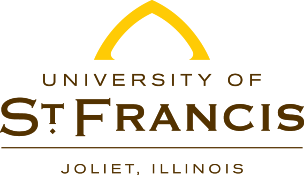Joliet, Ill. – The University of St. Francis (USF) is one of the nation’s most environmentally responsible colleges, according to The Princeton Review.
The education services company features USF in its website resource, The Princeton Review Guide to Green Colleges: 2024 Edition, released in late October 2023. The guide is accessible for free at www.princetonreview.com/green-guide.
The Princeton Review chose the schools in the guide based on its survey of administrators at 680 colleges during the 2022-23 academic year and surveys of students attending the colleges. The company’s editors analyzed more than 25 survey data points to select the 522 schools chosen for the guide.
USF has completed several sustainability-focused projects over the past several years, including the creation of a pollinator garden, maintenance of on-campus beehives, study and restoration of the Charlotte Codo Prairie in Frankfort, composting, and the creation of community garden.
The university’s sustainability efforts are tied to the teachings of Saint Francis of Assisi, who is remembered for his love of the environment and all living things.
“We believe that our patron Saint Francis of Assisi is the example par excellence challenging us to of an integral ecology lived out joyfully and authentically (adapted from Pope Francis’ Laudato Si’ Paragraph 10),” added Sr. Mary Elizabeth Imler, OSF, USF Vice President of Mission Integration.
“We strongly recommend the University of St. Francis to the increasing number of students who care about the environment and want their ‘best-fit’ college to also ideally be a green one,” said Rob Franek, The Princeton Review’s Editor-in-Chief. “USF demonstrates an exemplary commitment to sustainability and to green practices—and it offers excellent academic programs.”
USF was also recognized by The Princeton Review’s Best in the Midwest section of its “2023 Best Colleges: Region by Region” website. The honor marks the fifteenth consecutive year USF has been named to this national listing.
About The Princeton Review
The Princeton Review, is a leading tutoring, test prep, and college admission services company. Every year, it helps millions of college and graduate school–bound students achieve their education and career goals through online and in-person courses delivered by a network of more than 4,000 teachers and tutors, online resources, and its more than 150 print and digital books published by Penguin Random House. The company’s Tutor.com brand is one of the largest online tutoring services in the U.S. It comprises a community of thousands of tutors who have delivered more than 21 million one-to-one tutoring sessions. The Princeton Review is headquartered in New York, NY. The Princeton Review is not affiliated with Princeton University. For more information, visit PrincetonReview.com and the company’s Media Center.
: :
The University of St. Francis, in Joliet, Ill., serves close to 4,000 students nationwide and offers undergraduate, graduate, doctoral and certificate programs in the arts and sciences, business, education, nursing and social work. There are over 53,000 USF alumni across the globe. For information, call 800-735-7500 or visit stfrancis.edu.
University of St. Francis: Bigger thinking. Brighter purpose.
# # #


